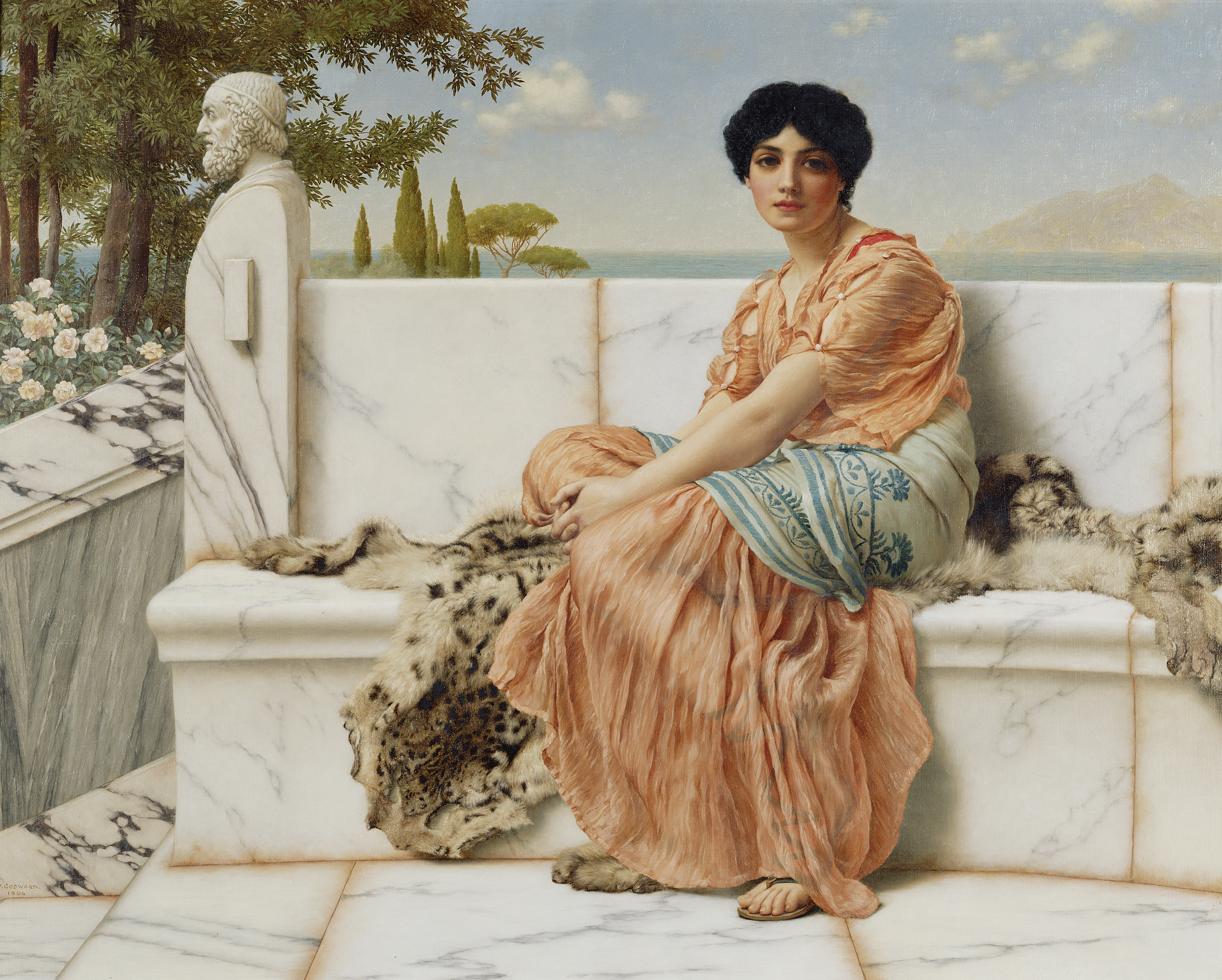Reverie a.k.a. In the Days of Sappho (1904), by John William Godward
Wikimedia Commons
If you had a time machine, where would you go? Where–and when–was the best time in history to be a girl? As a lover of Ancient Greek history, I have often found myself intrigued by Sappho and her school on Lesbos.
For most girls in Ancient Greece, life was a preparation for their future as wives and housekeepers. A girl’s existence was constructed entirely around their male relatives, particularly her father, and later her husband. Her education was largely informal and dedicated to learning how to maintain a household. If she were to learn how to read and write, it was so she could teach her future sons their letters, and not for her own benefit.¬†
Life for many girls in ancient Greece was constricted, designed entirely around their future roles as wives and mothers. Education for boys however, focused on training the mind, body and soul – that sounds much more fun! Was there anywhere in Greece where girls could find a more nuanced education?
One place may have been the island of Lesbos, the home of Sappho, the most famous female poet in ancient Greece. Despite her fame, we know very little about her and her poems, as only fragments remain. From these fragments, we can tell that most of her poems appear to focus on the relationships between the women who congregated in the town of Mylitene on the island. This concentration on female relations has led to speculation that Sappho’s interest in women was not strictly platonic – in fact the word “lesbian” comes from the name of Sappho’s home island.
So, what was this community of women living on Lesbos? Unfortunately, the historical record doesn‚Äôt tell us much. It has often been described as a kind of girls’ school, perhaps akin to a finishing school, where young girls learnt how to sing, write poems, and dance before being married. However, this may be an attempt by Victorian scholars to place Sappho‚Äôs community of women in a context that made sense to their world view.
There has been some suggestion that the community had religious connotations, as some of Sappho’s poems describe religious rites. Groups of people bound together by religious bonds existed in Greece at the time, such as the Sacred Band of Thebes, the elite force in the Theban army consisting entirely of male lovers. Some religious festivals such as the Thesmophoria placed women at their centre, with rites and rituals that were a mystery to non-members. Perhaps Sappho’s school was a similar institution.
We may never know exactly what exactly the community of women of Lesbos was or what happened to the girls who lived there, but it does seem that here was a place where girls were encouraged to be creative and learn from the older women living there. Even if the point of this education was still marriage, girls were taught more than just the basic household chores of weaving and supervising servants. As well as learning songs and dances, there was the opportunity to meet and form bonds with women from all over Greece; I hope that life on Lesbos offered a much more interesting and fulfilling education for those girls!
-Sarah Jackson
Junior Girl
Girl Museum Inc.

